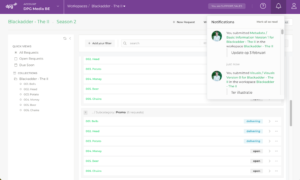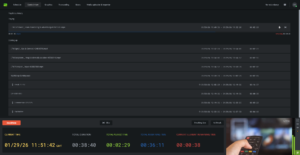DOTSCREEN – Unlocking diversity and efficiency: the benefits of multiple 3rd-party vendors for end-to-end OTT streaming services

Vincent Gattone, Head of Partnerships and Business Development, DOTSCREEN
In the ever-evolving landscape of media consumption, Over-The-Top (OTT) streaming services have emerged as the new frontier, captivating audiences with a diverse array of content. As the demand for high-quality streaming experiences intensifies, businesses face the crucial decision of either adopting an all-inclusive solution from a single vendor or embracing the intricacies of integrating multiple third-party vendors. While the allure of a “one-stop-shop” solution may seem appealing, a comprehensive evaluation reveals that a multi-vendor approach for developing end-to-end OTT streaming services offers distinct advantages that pave the way for innovation, flexibility, and enhanced user experiences.
Adopting a multi-vendor approach fosters innovation through specialization. Each vendor brings its unique expertise to the table, focusing on specific components of the streaming ecosystem. This specialization allows for in-depth focus and a dedicated pursuit of excellence in their respective domains. From content delivery networks (CDNs) to user interface design, leveraging vendors with specialized skills ensures that every aspect of the streaming service is optimized for peak performance.
The dynamic nature of the streaming industry demands agility and scalability. Integrating multiple vendors empowers streaming services to scale different components independently based on demand fluctuations. This flexibility not only enhances cost efficiency by preventing over-provisioning but also enables services to seamlessly adapt to sudden spikes in viewership. With a “one-stop-shop” solution, scalability might be limited by the capabilities and capacity of a single vendor’s infrastructure, potentially leading to bottlenecks during peak times.
Relying on a single vendor for an all-encompassing solution introduces a substantial risk of vendor lock-in. This dependency could lead to a loss of bargaining power and hinder the ability to negotiate favorable terms in the long run. On the contrary, engaging multiple vendors allows businesses to diversify their partnerships, reducing dependency risks and offering negotiation leverage that can result in more competitive pricing and improved service level agreements.
Different aspects of an OTT streaming service require specialized attention. For instance, user interface design, content delivery, transcoding, and analytics are distinct areas that demand unique strategies. By selecting the best-of-breed vendors for each area, businesses can tailor their solutions to achieve optimal performance in each aspect, leading to an overall superior user experience. A “one-stop-shop” approach might compromise on individual components’ quality to provide an integrated but potentially suboptimal solution.

The user experience is a critical factor in the success of any OTT streaming service. A multi-vendor approach allows services to tap into various innovations that can enrich the user journey. Different vendors might excel in creating immersive user interfaces, personalized recommendation algorithms, interactive features, or social integration. This diversity of innovations can lead to a more engaging and differentiated streaming experience that resonates with a broader range of users.
The technology landscape evolves rapidly, and what might be cutting-edge today could be obsolete tomorrow. Relying on a single vendor for the entire solution might lock a business into outdated technology stacks. Conversely, a multi-vendor strategy enables services to adapt to the latest technological advancements by selecting vendors that are at the forefront of innovation. This adaptability ensures that the service remains competitive and up-to-date in an ever-changing industry.
Security is a paramount concern in the realm of OTT streaming. By employing a multi-vendor approach, businesses can implement multiple layers of security provided by different vendors, reducing the risk of a single point of failure. This layered security approach enhances protection against data breaches, cyberattacks, and other potential vulnerabilities, ensuring a robust and comprehensive security posture.
At DOTSCREEN, a multiscreen solutions specialist, we fully advocate for a multi-vendor approach. Our expertise in creating seamless, cross-device experiences adds a layer of sophistication to the OTT landscape. With DOTSCREEN, the end user benefits from a consistent and user-friendly interface across various devices, enhancing engagement and satisfaction. Together with our trusted partners, we bring a comprehensive streaming solution to our clients such as OSN, TF1, Megacable, and Warner Discovery and to the world of OTT.
The benefits of embracing multiple third-party vendors for developing end-to-end OTT streaming services are vast and impactful. The diversity of expertise, scalability, flexibility, risk mitigation, tailored solutions, user experience innovation, technological adaptability, and enhanced security collectively paint a compelling picture for businesses looking to thrive in the competitive streaming landscape. While a “one-stop-shop” solution might seem convenient, it can potentially limit a service’s potential for growth, innovation, and adaptability. By carefully selecting and integrating specialized vendors, businesses can unlock the full potential of their OTT streaming services and deliver exceptional experiences to audiences around the globe.
- Business Models
- Digital Transformation
- Consumer Habits & Experiences
- Publish
- OTT & Streaming Platforms









